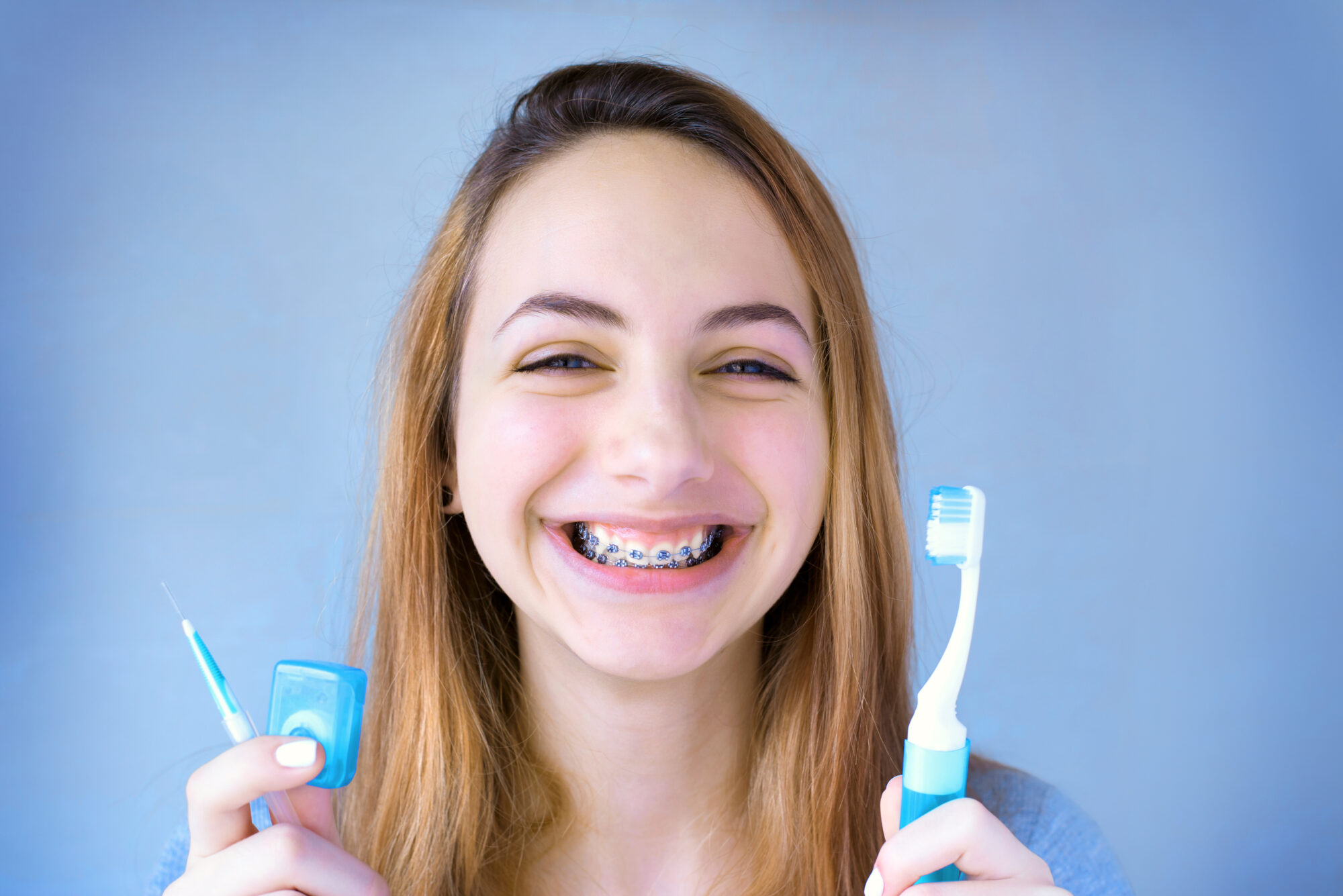Having braces is a significant step toward achieving a straight and beautiful smile. However, to ensure the best possible outcome, it’s crucial to take proper care of your braces throughout the treatment period. By following a few simple guidelines and incorporating good oral hygiene habits, you can maintain the health of your teeth and gums while maximizing the effectiveness of your braces. In this comprehensive guide, we will walk you through essential tips and techniques for taking care of your braces, helping you achieve that confident and radiant smile you’ve always dreamed of.
- Brushing and Flossing: Maintaining a diligent oral hygiene routine is of paramount importance when you have braces. Here are some key tips to remember:
- Brushing: Use a soft-bristled toothbrush and fluoride toothpaste to brush your teeth after every meal and snack. Angle your brush at a 45-degree angle, gently cleaning around the brackets and wires. Pay attention to all tooth surfaces, including the gumline. Spend at least two minutes brushing, ensuring a thorough clean.
- Flossing: Regular flossing is vital to prevent plaque buildup and tooth decay. Use orthodontic floss threaders or special floss designed for braces to reach beneath the wires. Gently move the floss back and forth between each tooth, including the area just below the gumline. Aim to floss at least once a day, preferably before bedtime.
- Interdental Brushes: Consider using interdental brushes to clean hard-to-reach areas between the brackets and wires. These small brushes can effectively remove food particles and plaque.
- Eating Habits: Maintaining a braces-friendly diet is crucial to avoid damaging your braces or teeth. Here are some recommendations:
- Avoid Sticky and Hard Foods: Stay away from chewy candies, popcorn, nuts, ice, and other hard or sticky foods that can dislodge brackets or bend wires. Opt for softer alternatives like steamed vegetables, yogurt, pasta, or mashed potatoes.
- Cut Food into Smaller Pieces: When eating harder foods, such as fruits or raw vegetables, cut them into small, manageable pieces to minimize the stress on your braces.
- Be Mindful of Habits: Avoid chewing on pens, pencils, or fingernails, as these habits can damage your braces. Additionally, refrain from biting directly into apples or corn on the cob. Instead, cut them into smaller pieces before consuming.
- Orthodontic Wax and Relief Techniques: Braces can occasionally cause discomfort or irritation, especially during the initial adjustment period. Here’s how you can find relief:
- Orthodontic Wax: Apply a small amount of orthodontic wax to any brackets or wires that are causing irritation. The wax acts as a barrier between your braces and the inside of your mouth, reducing friction and discomfort.
- Saltwater Rinse: If your gums or cheeks are sore, rinse your mouth with warm saltwater (one teaspoon of salt dissolved in eight ounces of water) to alleviate pain and promote healing. Certain over-the-counter mouth sore mouthwashes can work great as well.
- Over-the-Counter Pain Relief: Over-the-counter pain relievers such as acetaminophen or ibuprofen can help manage any discomfort. However, always consult your orthodontist or healthcare provider before taking any medication.
- Regular Orthodontic Check-ups: Frequent visits to your orthodontist are essential for monitoring progress and making necessary adjustments. Follow these guidelines:
- Schedule Appointments: Adhere to your orthodontist’s recommended appointment schedule, typically every 6-10 weeks. These visits allow your orthodontist to make adjustments and evaluate the progress of your treatment.
- Communicate Concerns: If you experience any discomfort, broken brackets, or issues with your braces, don’t hesitate to contact your orthodontist. Timely communication ensures that any problems are addressed promptly.
- Follow Post-Treatment Instructions: After your braces are removed, your orthodontist will likely provide you with post-treatment instructions. Following these guidelines, such as wearing a retainer as directed, is crucial for maintaining the results of your orthodontic treatment.
Caring for your braces requires dedication and consistency, but the end result—a beautiful, straight smile—is undoubtedly worth the effort. By implementing good oral hygiene practices, being mindful of your eating habits, and attending regular orthodontic check-ups, you can ensure the success of your braces treatment by Dr. Peterson. Remember, taking care of your braces not only enhances the effectiveness and efficiency of the treatment but also promotes better overall oral health. Embrace this journey, and soon enough, you’ll be rewarded with a radiant smile that you can confidently share with the world.

